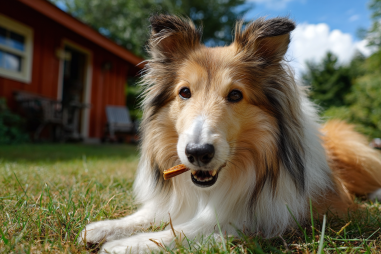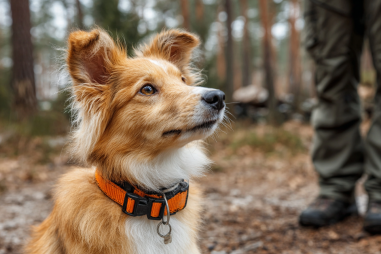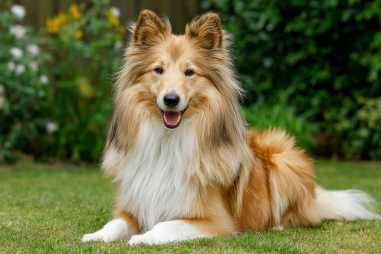Shetland Sheepdogs, often affectionately called Shelties, are beloved for their lively, intelligent, and loyal nature. These charming dogs carry a distinctive temperament that not only highlights their history as working herders but also affects their interactions with families, other pets, and environments. Understanding the temperament traits of Shetland Sheepdogs is essential for prospective owners and enthusiasts alike, as it plays a crucial role in care, training, and promoting a happy, well-adjusted pet.
Breed History and Personality Overview
The Shetland Sheepdog originated from the Shetland Islands of Scotland, where they were bred primarily for herding sheep and protecting livestock. Despite their small size compared to other herding breeds, Shelties possess remarkable agility and intelligence. Over time, their keen instinct for herding combined with keen observation skills and a strong work ethic has shaped their personality into one that is vigilant, alert, and highly responsive.
Personality-wise, Shelties are known for their affectionate and gentle demeanor. They tend to form strong bonds with their families and are often described as sensitive and intuitive. This breed’s temperament reflects a blend of spirited energy and a need for close companionship, making them both playful and devoted pets.
Typical Sheltie Behavior and Social Needs
Shelties are naturally active and intelligent dogs, which means they thrive when given tasks and mental stimulation. Their working background means they enjoy having a purpose, whether it’s playing games that challenge their problem-solving skills or participating in dog sports like agility. Without enough mental and physical activity, Shelties might become restless or develop unwanted behaviors such as excessive barking.
Socially, Shelties are generally friendly but can be somewhat reserved with strangers. Early socialization is important to build their confidence and ensure they are well-adjusted when meeting new people or encountering unfamiliar situations. These dogs cherish interaction and being part of family activities, so isolation or prolonged periods alone can negatively impact their well-being.
Interaction with Children and Other Pets
One of the most wonderful aspects of Shelties is their compatibility with children and other pets. Their gentle and patient nature makes them excellent companions for kids, especially when socialized properly from an early age. Shelties tend to be protective and caring toward smaller family members while also displaying playful energy that matches children’s enthusiasm.
When it comes to other pets, Shetland Sheepdogs typically coexist well with other dogs and even cats if introduced thoughtfully. Their herding instinct might occasionally drive them to chase smaller animals, but with proper training and supervision, this behavior can be managed effectively. It’s important to nurture positive interactions and maintain consistent socialization routines to ensure that Shelties are comfortable and confident in multi-pet households.
Common Emotional Traits
Shelties are emotionally intuitive and often pick up on the moods of their owners and surroundings. This sensitivity allows them to respond with empathy, offering comfort when their family members are upset or anxious. However, this emotional depth can also make them prone to nervousness or shyness, especially if not adequately socialized.
This breed is known for being loyal to a fault, sometimes leading to a tendency toward separation anxiety if left alone for long periods. Their instinct to stay close to their “flock” is strong, so they thrive best in environments where they feel included and secure. Encouraging independence while providing ample companionship helps balance their emotional needs.
Adaptability to Different Living Environments
While Shelties are highly adaptable, their temperament requires an environment that supports their activity levels and mental stimulation. They do well in both urban and rural settings, provided they get regular exercise and opportunities to engage their minds. In apartments or smaller homes, owners should prioritize daily walks and interactive play to prevent boredom and excessive barking, which can become an issue due to their alert nature.
The breed’s sensitivity means that a calm and stable living environment suits them best. Sudden loud noises or chaotic surroundings may cause stress or anxiety. Hence, owners should create a safe, quiet space where the Sheltie can retreat when needed, especially during storms or fireworks.
How Temperament Affects Training
Shetland Sheepdogs are highly trainable, thanks to their intelligence and eagerness to please. Their temperament supports quick learning, and they often excel in obedience training and canine sports. Positive reinforcement methods work best with Shelties, as harsh or inconsistent discipline can damage their sensitive nature and lead to fearfulness.
Their natural herding instinct includes a desire to control movement, which sometimes manifests as nipping or chasing behaviors during play. Training can redirect this energy into constructive activities, reinforcing boundaries in a gentle and clear manner. Consistency and patience are key, as Shelties respond well to encouragement and thrive on structure.
Managing Anxiety and Stress
Given their emotional sensitivity, managing anxiety and stress in Shelties is crucial for their overall well-being. Common stress triggers might include separation from family members, loud noises, or unfamiliar environments. Early socialization and gradual exposure to new situations can build confidence and resilience.
For Shelties that show signs of anxiety, such as pacing, whining, or excessive barking, owners can employ calming strategies, including:
- Establishing a regular routine to provide predictability
- Using puzzle toys and mentally stimulating games
- Creating a cozy, safe space with familiar scents and comfort items
- Consulting with a veterinarian or behaviorist for severe cases, possibly considering calming supplements or therapies
With attentive care, Shelties can thrive emotionally and remain confident, sociable companions.
Tips for Nurturing Positive Sheltie Traits
To support and nurture the best qualities in a Shetland Sheepdog, consider the following tips:
- Provide ample mental and physical stimulation: Engage your Sheltie with games, training sessions, and regular exercise to keep their bright mind and active body satisfied.
- Socialize early and often: Expose your Sheltie to various people, pets, and environments to build confidence and reduce fearfulness.
- Use positive training methods: Reward-based training enhances their responsiveness and strengthens the bond between dog and owner.
- Maintain a consistent routine: Predictable schedules help soothe anxious tendencies and create a sense of security.
- Monitor emotional health: Watch for signs of stress or anxiety and address them promptly with calming techniques or professional support if needed.
- Encourage social interaction: Facilitate healthy play and social time with children, other pets, and friendly dogs to uphold their social needs.
By embracing these practices, Sheltie owners can foster the breed’s natural intelligence, loyalty, and affectionate spirit, creating a harmonious and joyful life together.







